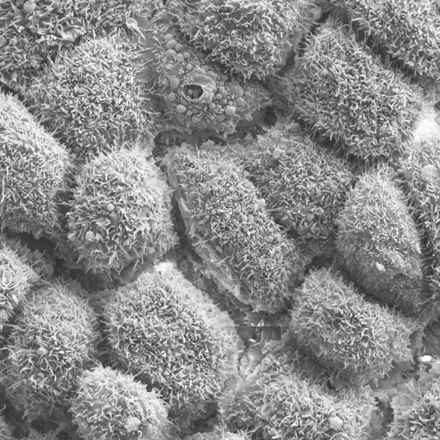Understanding new stress response pathway involved in AMD

Professor Maria Balda, University College London - £249,451
The cells in the macula are very active in order to sense light and send that information to the brain. This means that they are exposed to a lot of stress, which can lead to cell damage and sight loss. This research is looking at a biochemical pathway that is believed to be involved in reducing the effects of stress in these cells. This pathway is thought to be impaired in people with age-related macular degeneration (AMD).
What is the problem?
The retinal pigment epithelium (RPE) (pictured above) is a single layer of cells in the back of the eye which is very important as it supports the light detecting photoreceptors. It is exposed to large amounts of stress, which can lead to cell degeneration. The RPE has a stress-response mechanism to combat this and stay healthy. Early work from this research team has shown that a component of the stress-response biochemical pathway, called Apg-2, is reduced in early AMD.
What are they doing?
The project aims to better understand the Apg-2 pathway, and how reduction of Apg-2 may impact RPE heath. The researchers will test how the macula changes when Apg-2 is reduced, to understand how this reduction may lead to increased inflammation, cell damage and AMD.
How can this help?
By better understanding the biochemical pathways that may be involved in AMD, we can hopefully learn new ways of treating the condition. This can help us develop new therapies to slow or stop the disease, and therefore prevent sight loss.
See our other projects
Since 1987 the Macular Society has invested around £10 million in over 100 research projects.
Explore more research
Beating macular disease through funding medical research and improving the lives of those living with macular disease.
Get the latest research news from the Macular Society
To hear about life-changing research and treatments, subscribe to our monthly enewsletter today. Together we can Beat Macular Disease.
Sign up to our free email newsletter



